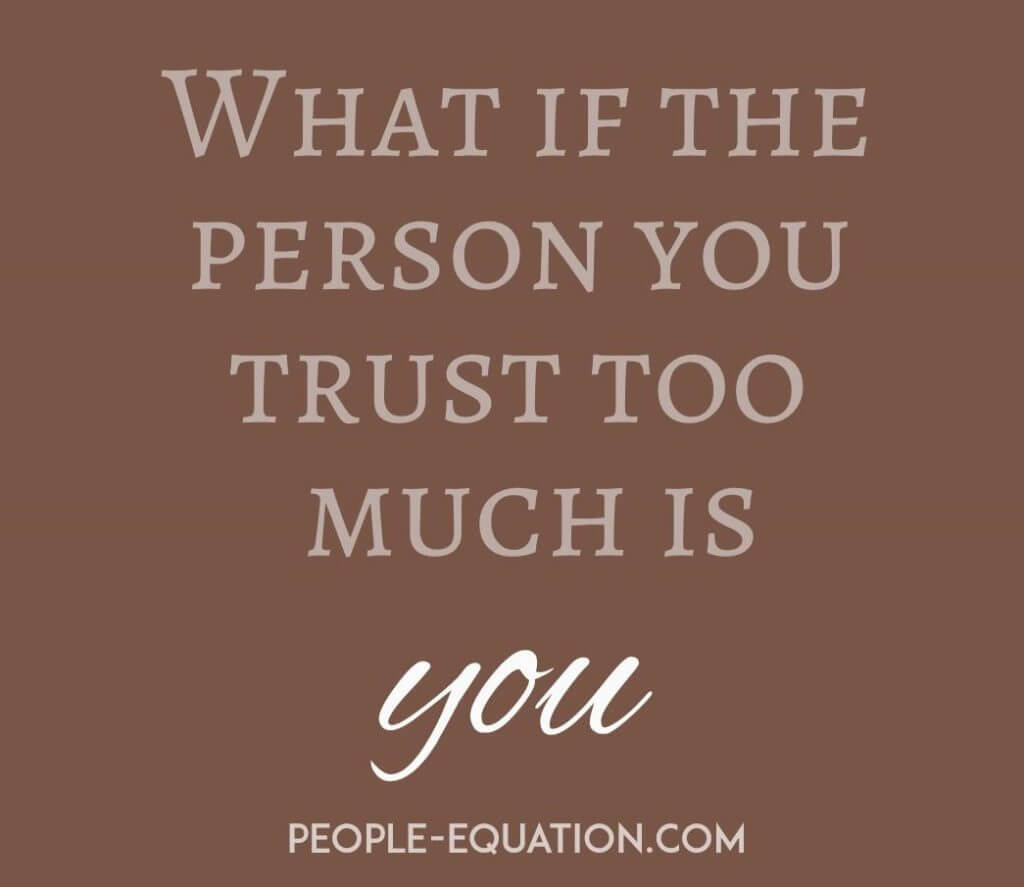
My mother always said that the true test of marriage was if a couple could successfully hang wallpaper together. Mr. People Equation and I have that handled. No problem.
But engaging in a task that requires me to follow Mr. People Equation’s directions, such as moving furniture or positioning a picture on a wall for hanging? That’s when the bickering is sure to start.
Him: “Move it up a bit.”
Me: “Like this?”
Him: “No, up.”
Me: [moving in a slightly different direction] “OK, how about this?”
Him: “I said UP. Like THIS.” [demonstrates impatiently.]
Me: “Oh, you mean forward. You said ‘up,’ but what you meant was ‘forward.’”
From there, our conversation devolves into accusations of poorly given directions and protests of “you never listen to me!” The conversation is now officially off the rails and speeding towards hard feelings and blame.
After decades of marriage, here’s what I’ve finally come to learn: we invest far too much time trying to establish who is right and not nearly enough time focusing on communicating more clearly so we can just get the dang picture frame hung.
It’s human nature to think we are clearly communicating our instructions. After all, if I think a clear thought in my brain and then I speak out the words exactly as I thought them, it will make sense, right? We have trust in our ability to verbalize simple statements. And we trust that people — especially those whom we’ve known a long time — will clearly interpret them as we state them.
Except that sometimes they don’t. Then communication suffers.
Jack Quarles, author of Expensive Sentences: Debunking the Common Myths that Derail Decisions and Sabotage Success, writes that we humans place our trust in not only each other, but in systems and structures around us to get through the day. From trusting traffic lights to guide us safely to work, to trusting that the food prepared for us is safe, “even the most cynical of us have to operate on a foundation of widespread trust,” observes Quarles.
When communication breaks down between two people, there’s a potential for deterioration of trust as well. When I interviewed Quarles for the launch of his book, he shared an interesting notion: sometimes the person we are trusting too much is our own self. “We all tend to believe that we’ve communicated more clearly than we have,” Quarles explained. We put an idea or statement “out there” and just because we uttered it, well, it should be clear, right?

And if the statement wasn’t clear? Where does the problem lie? “Whether it’s our fault, or more on the person who didn’t receive [the information] or hear it clearly, it doesn’t really matter in the end,” says Quarles. What we all want (at home and at work) is to work together and get results. “Added attention to clear communication can really get us there.”
Leaders are in a unique position in this regard because you are managing two types of interpersonal communication. Not only do you need to communicate clearly clearly with peers and direct reports, but you also may become party to a discussion between two team members who are having a communication breakdown.
You can head off communication snafus with one of these statements:
- I didn’t catch that. Would you please repeat it?
- I know you said to do “X.” To me that means “_____.” Is that the same thing to you?
- I’m not following you precisely. I understand what you mean about “A” but I’m unclear about parts “B” and “C.”
- I’ve heard you say that twice now, but somehow it’s not registering with me. Is there a different way you could say it?”
- It sounds like you want to do “Z.” Is that correct?
- Did I understand you to say that you want to ______?
Notice that these statements are framed from the first person (“I”) rather than “you” statements (such as, “you just said XYZ.”) By keeping the statement focused on how you are experiencing the conversation, you reduce the chance that the person will feel attacked.
So next time there’s a communication breakdown, ask yourself if you trusted yourself too much in the “getting the message out” aspect and not enough on the “message received” component. Instead of focusing on who’s to “blame” for it, focus on what you can do to get the derailed conversation back on track.
Jennifer, thanks for a great post. This sounds like a very interesting book. I notice these communication disconnects all the time. And I learned through another method that I and Me statements are a way of taking responsibility for my side of the problem. When I use “you” or “they” statements, others may hear me project the blame. Thanks for the tip and the post. Mike…
Mike,
What an excellent way to help people understand the use of “I,” and “You” statements. Thanks for enhancing that concept!
Thanks for the insightful post on communicating! I plan to share your communication statement example with my team
Thanks for sharing this today. I often feel I am less competent when I ask these statements at work and I have noticed on occasion when I do bring up these clarifying statements, others have the same thoughts but were afraid to ask. I can see now, that it is not incompetence but wanting to be competent by asking clarifying questions. Great blog today.